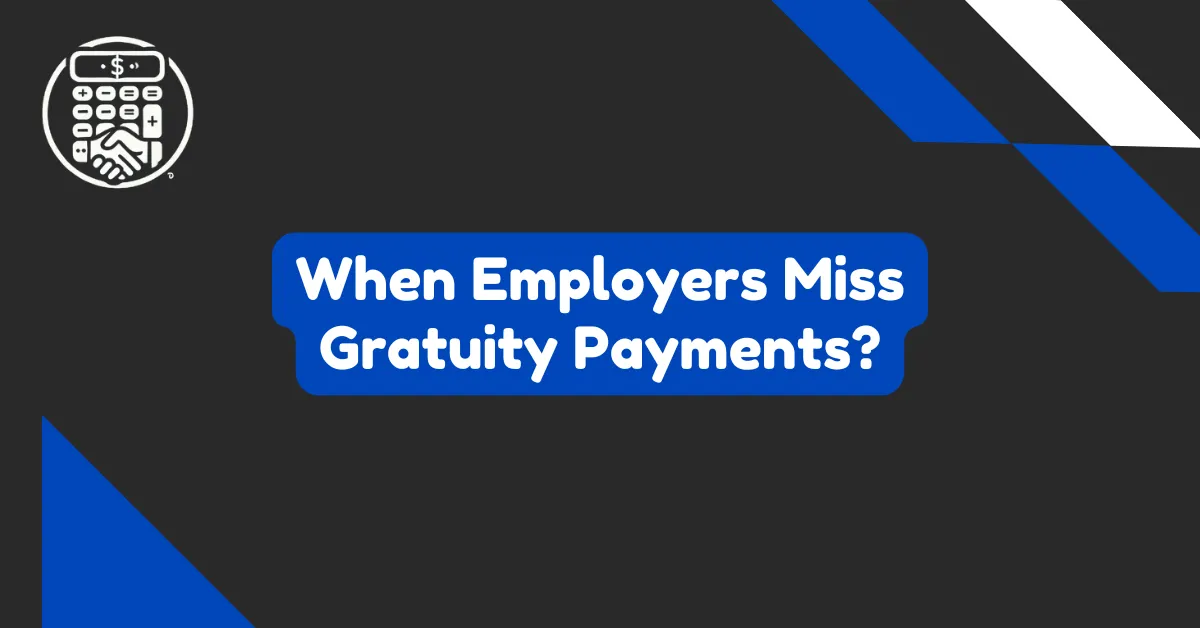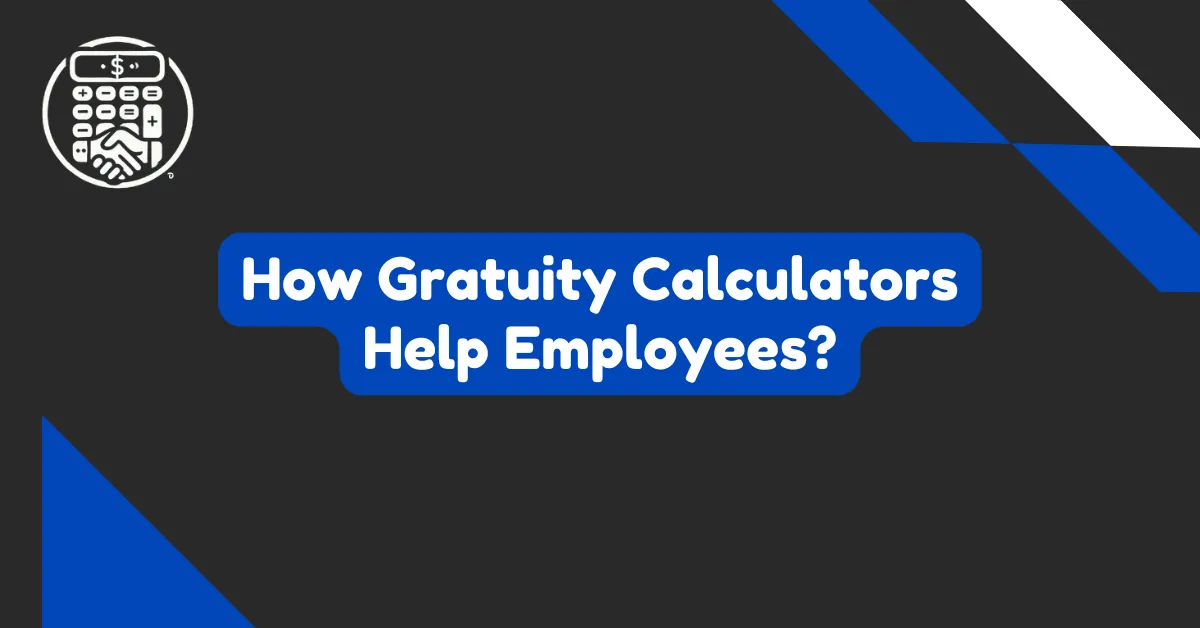Have you ever found yourself waiting for your gratuity payment, only to find your employer hasn’t paid it? It’s frustrating, especially when you’re relying on this payment for your next steps. If you’ve worked hard and completed your contract, what do you do if your employer misses the gratuity payment? Let’s break it down.
When Employers Miss Gratuity Payments? (Quick Answer)
If an employer misses gratuity payments in the UAE, workers have legal options. Employees can first approach HR or the employer directly, followed by filing a complaint with the Ministry of Human Resources and Emiratisation (MOHRE). In severe cases, workers may seek legal action to claim their rights under UAE Labor Law.
What Should You Do If Your Employer Misses Your Gratuity Payment?
Gratuity payments are a legal right under UAE Labor Law. If your employer fails to pay your gratuity on time or refuses to make the payment altogether, you have several steps you can take to resolve the issue. It’s important to act promptly to ensure that your rights are protected.
Step 1: Check Your Eligibility and Gratuity Calculation
Before taking action, ensure that you are eligible for a gratuity payment. According to UAE Labor Law, gratuity is generally paid when:
- You have worked for more than one year with the same employer.
- You have completed your contract, whether it’s limited or unlimited.
- Your employment is terminated in a manner other than dismissal for misconduct.
Verify your gratuity calculation as well:
- Gratuity is calculated based on your basic salary.
- You are entitled to 21 days of basic salary for each year of service for the first five years, and 30 days for each additional year.
Once you confirm that you are eligible and have calculated the amount correctly, you’ll be in a stronger position to act.
Step 2: Speak to Your Employer or HR Department
The first step to resolve the issue is always to communicate directly with your employer or the HR department. Sometimes, the delay may be due to administrative oversight or other temporary issues.
What to do:
- Politely remind them of the due payment.
- Ask for a clear timeline on when you can expect the payment.
- Document all your communications in writing for future reference.
If your employer acknowledges the oversight and commits to making the payment, you may not need to take further action. However, if you don’t receive a clear response, you can proceed with the next step.
Step 3: File a Complaint with the Ministry of Human Resources and Emiratisation (MOHRE)
If your employer fails to pay gratuity and does not respond to your communication, the next step is to file a formal complaint with the Ministry of Human Resources and Emiratisation (MOHRE). MOHRE is the government body responsible for resolving labor disputes and protecting the rights of workers in the UAE.
Here’s how you can file a complaint:
- Gather Documents: Collect all relevant documents, including your employment contract, payslips, termination letter (if applicable), and any communications with your employer regarding the gratuity payment.
- Submit the Complaint: You can file a complaint online via the MOHRE website or app, or you can visit one of the ministry’s customer service centers. The complaint should detail the issue and any actions you’ve taken to resolve it.
- MOHRE Investigation: After receiving your complaint, MOHRE will initiate an investigation. They may reach out to your employer for clarification, and if the employer fails to resolve the issue, the ministry will help facilitate a resolution.
Step 4: Legal Action (If Necessary)
If MOHRE’s intervention does not result in a satisfactory outcome, workers may choose to take legal action through the UAE courts. This step may involve filing a labor lawsuit against your employer to claim your unpaid gratuity.
What to do:
- Seek legal advice from a lawyer who specializes in UAE labor law to ensure that your case is strong and that all the required documents are in order.
- File your lawsuit in the Labor Court under the Ministry of Justice. However, be aware that legal proceedings can be time-consuming and costly.
The court will review your case, and if it finds in your favor, it will issue a ruling to require the employer to pay the outstanding gratuity along with any additional legal costs.
Step 5: Know Your Rights and Protections
It’s important to understand that UAE Labor Law protects workers in cases of unpaid gratuity. Under the law:
- Employers are obligated to pay end-of-service benefits on time.
- Failure to do so could result in penalties or fines imposed on the employer.
If you leave your job voluntarily, you’re still entitled to receive gratuity if you’ve worked for more than one year. However, if you leave within a year, the gratuity amount will be calculated on a pro-rata basis.
Step 6: Take Preventive Measures for Future Employment
If you’ve faced issues with gratuity payment in your previous job, it’s essential to take steps to prevent similar issues in the future:
- Understand the contract terms: Always review the gratuity clauses in your employment contract before signing. Make sure both parties are clear on the gratuity calculation and payment schedule.
- Track your tenure: Keep detailed records of your service periods and salary details for clarity.
- Know the legal deadlines: Employers in the UAE are required to settle any end-of-service payments within 14 days of contract termination.
Step 7: Consider Mediation or Alternative Dispute Resolution
In some cases, mediation may be a less time-consuming and more cost-effective option to resolve gratuity payment disputes. Mediation involves a neutral third party who helps both the employer and employee reach a mutually acceptable agreement without resorting to formal litigation.
You can request mediation services from MOHRE or use an alternative dispute resolution provider. The mediator can help both parties resolve the issue amicably, potentially saving time and money.
Conclusion
If your employer misses your gratuity payment, don’t panic—there are clear steps to take to claim your rights.
- Ensure your eligibility and attempt to resolve the issue directly with your employer.
- File a complaint with MOHRE if unresolved.
- Pursue legal action if necessary.
By following these steps, you’ll ensure that you’re equipped to handle any potential issues with your gratuity payment and take appropriate action when necessary.
Contents
- 1 When Employers Miss Gratuity Payments? (Quick Answer)
- 2 What Should You Do If Your Employer Misses Your Gratuity Payment?
- 2.1 Step 1: Check Your Eligibility and Gratuity Calculation
- 2.2 Step 2: Speak to Your Employer or HR Department
- 2.3 Step 3: File a Complaint with the Ministry of Human Resources and Emiratisation (MOHRE)
- 2.4 Step 4: Legal Action (If Necessary)
- 2.5 Step 5: Know Your Rights and Protections
- 2.6 Step 6: Take Preventive Measures for Future Employment
- 2.7 Step 7: Consider Mediation or Alternative Dispute Resolution
- 3 Conclusion






